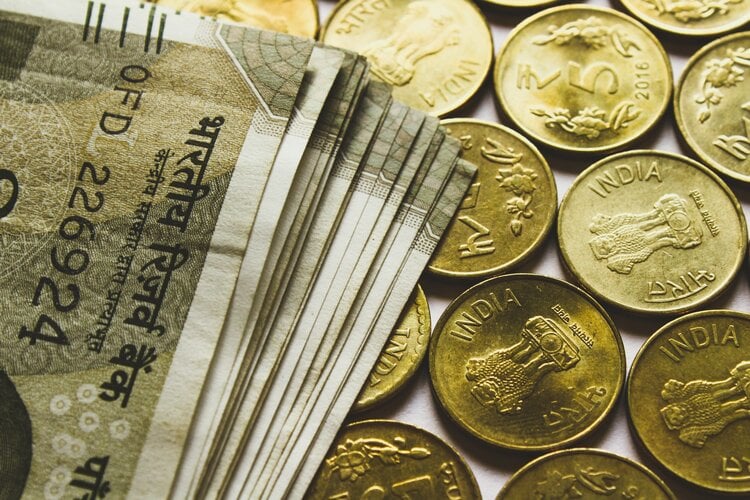Despite the negative market sentiment, the Indian Rupee continues to hold its ground. However, the rising oil prices and geopolitical concerns in the Middle East may limit its upside and trigger risk-off sentiment. The US S&P Global PMI data is eagerly awaited by market players, although India’s markets are closed for the Dussehra holidays. The Indian Rupee remains strong against the US Dollar, thanks to the decline in US Treasury bond yields. The Reserve Bank of India’s potential aggressive intervention and support for the Indian Rupee act as a headwind for the USD/INR pair. However, the higher crude oil prices and escalating geopolitical tension in the Middle East may contribute to a risk-off mood and cap the Indian Rupee’s upside. Traders will monitor India’s Balance of Payments for Q2 on Thursday. The Federal Reserve officials will not deliver any speeches this week due to the upcoming FOMC meeting. Traders will look for cues from the US S&P Global PMI, the preliminary estimate of Q3 GDP, and the Core Personal Consumption Expenditure Index later this week. The Chicago Fed National Activity Index suggests that the US economy is still far from a recession. The Reserve Bank of India’s monetary policy committee has stated that it will continue to focus on maintaining inflation at the target of 4%. Net foreign direct investment in India has decreased, reflecting a slowdown in global activity and an increase in repatriation. The RBI intervenes in the foreign exchange market to prevent excessive volatility in the INR. India’s Finance Minister will closely monitor the supply chain impact of Middle East tensions. The RBI’s October bulletin indicates that growth in India is expected to gain momentum for the remainder of the year. Technical analysis shows that the Indian Rupee is trading above the key support level of 83.00 against the USD. The immediate upside barrier is at 83.15, followed by 83.30 and the all-time high around 83.45. The USD/INR pair holds above the 200-day Exponential Moving Average on the daily chart, supporting further upside in the short term. The table and heat map display percentage changes of the US Dollar against major currencies over the past 7 days. The Indian Rupee is influenced by external factors such as oil prices, the value of the US Dollar, and foreign investment. The RBI intervenes in the forex market and adjusts interest rates to maintain a stable exchange rate and target inflation at 4%. Macroeconomic factors like inflation, interest rates, GDP growth rate, balance of trade, and foreign investment inflows also affect the value of the Rupee.
